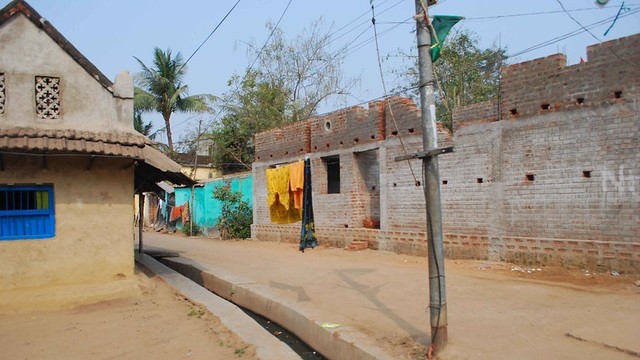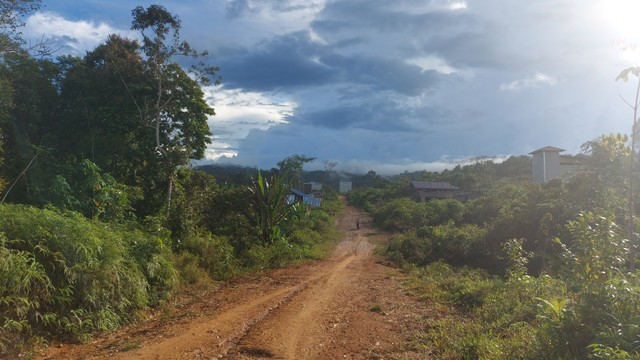Civil society organisations are key to creating better land policies: lessons from Zambia
In a blog series from IIED and Land Portal, rights defenders and practitioners in the global South reflect on their strategies to push for more responsible and sustainable land-based investments. Here, Jesinta Kunda describes how civil society organisations were key to improving Zambia’s first ever National Lands policy.


CSO consultative meetings on the draft land policy in Luapula province (Photo: copyright ZLA Mansa Branch/Mansa DLA)
Life itself is dependent on land. It contributes to the cultural, social, political and economic wellbeing of those who depend upon it. Yet for decades, Zambia lacked an adequate land policy framework (PDF) to regulate land tenure or protect land rights.
To address this, the process for formulating the first ever land policy began in 2002. It finally culminated in 2021 when Zambia’s first ever National Lands policy (NLP) was adopted.
As part of this process, in 2014 the Zambia Land Alliance (ZLA), alongside two other organisations, was selected to join the government’s Lands Policy Formulation Technical committee, responsible for drafting the NLP.
Over the years, ZLA had built its credibility as an organisation that advocates for fair land laws and policies that benefit vulnerable Zambians. Where ZLA and the committee disagreed, ZLA provided its views through a position paper or a shadow policy document. In this way, ZLA was able to continue influencing the process from within rather than disengaging from it, which would have made it difficult for the government to consider ZLA’s suggestions.
ZLA began by conducting a stakeholder mapping to understand the different stakeholders’ interests and their roles in the policy formulation process. Working together with an alliance of other civil society organisations (CSOs), ZLA conducted a series of consultations. It also helped raise awareness of the draft land policy via radio and television programmes, providing a platform for the general public to take part by calling and texting.
Other stakeholders were also consulted, including members of Zambia’s house of chiefs, who supported the proposal to secure customary land as opposed to converting it to state land. The house of chiefs later appointed ZLA to advise them and guide their discussions and consolidate their position during the policy formulation process.
Based on the information gathered during the consultations, the alliance created a CSO Shadow Land policy in 2016, which included advocating for provisions to secure customary land tenure and for a framework and guidelines to regulate customary land tenure and protect customary land rights. ZLA also coordinated the development of a position paper, press statements and submissions to parliamentary committees on the NLP.
What were the key outcomes for ZLA?
The final 2021 National Lands policy failed to adopt all of the progressive submissions made by the alliance of CSOs. However, the CSOs were happy that some of their submissions had been incorporated. For example, 50% of land allocations will now go to women and 20% to youth, with the eligibility age for young people to own land being lowered from 21 to 18 years.
ZLA’s participation also resulted in a well-coordinated CSO engagement. ZLA shared each new policy draft with the CSO advocacy committee for review and feedback. This meant that CSOs stayed informed and were ready to engage with the government and committee. Without that timely information, the effectiveness of the CSO engagement would have been severely hampered.
In addition, ZLA’s credibility improved its working relationship with the government. During its involvement, ZLA did not use the process to expose the government’s failings but instead to collaborate with it.
Government and other stakeholders still continue to consult with and engage ZLA in all land-related activities. For instance, ZLA has been appointed as a reference group member for the Zambian National Lands Audit (an ongoing initiative to create a repository for land data).
What challenges did ZLA face during the process?
The process was largely successful in influencing the new National Lands policy. However, ZLA and its alliance of other CSOs faced a number of challenges during the policy formulation process:
- Imbalance of power dynamics: the committee was dominated by government officials whose interests often ran counter to the alliance’s focus on community land rights and benefits
- Fear of collective responsibility: some organisations within the alliance expressed reservations about working with the committee in case a bad land policy was adopted
- Lack of funding: the CSO alliance lacked sufficient resources to conduct all planned activities to support the policy formulation process, and
- Restrictions due to COVID-19: validation of the draft NLP took place at the peak of the pandemic, making it hard for stakeholders to gather and validate the draft in person. This contributed to a dissatisfaction with the NLP among key stakeholders, especially chiefs, as they felt there was no transparency and that the government had highjacked the process.
Lessons for other CSOs
CSOs can play a wide range of roles in policy formulation processes. However, CSOs should also be flexible and adopt the most suitable role for their context.
From ZLA’s experience, the following approaches can be used by CSOs in policy formulation processes:
- Act as an intermediary between national and local actors: CSOs often work at grassroots level and have a practical understanding of what works and what does not work. They also have established relationships with communities that can be leveraged at a national level to influence policy formulation
- Be proactive and not reactive: CSOs should build a positive relationship with the government. Governments will be more likely to involve CSOs in policy formulation processes if there is mutual trust
- Bridge knowledge gaps through research and technical inputs: CSOs should use their expertise to bridge skills and knowledge gaps where government support for the process is limited
- Coordinate stakeholder efforts and positions: successful policy development initiatives require NGOs and CSOs to take a coordinated approach and present a united position
- Monitor and provide accountability: CSOs should monitor and report back on the progress of policy processes, noting where interventions are required. CSOs can also be instrumental in holding policymakers and committees to account to ensure they formulate fair policies, and
- Raise public awareness and promote participation: during policy formulation processes, CSOs can inform the public about their right to be consulted and help garner communities to participate in and contribute to draft policies.
ALIGN supports governments, civil society, local communities and other relevant actors in strengthening the governance of land-based investments. The project is implemented by a consortium led by IIED, the Columbia Center on Sustainable Investment (CCSI) and Namati, and is funded with UK aid from the UK government. This blog has been produced as part of ALIGN by IIED, however the views expressed do not necessarily reflect the official views or policies of ALIGN partners or the UK government.




